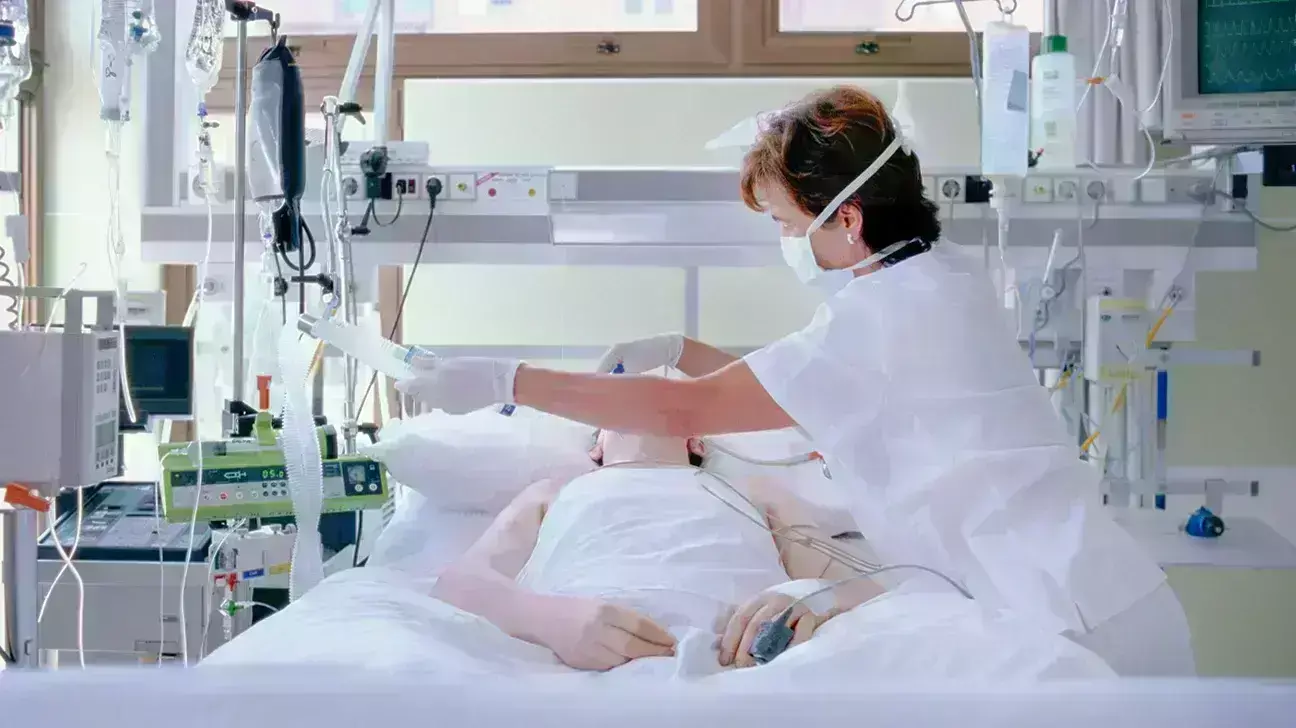- Home
- Medical news & Guidelines
- Anesthesiology
- Cardiology and CTVS
- Critical Care
- Dentistry
- Dermatology
- Diabetes and Endocrinology
- ENT
- Gastroenterology
- Medicine
- Nephrology
- Neurology
- Obstretics-Gynaecology
- Oncology
- Ophthalmology
- Orthopaedics
- Pediatrics-Neonatology
- Psychiatry
- Pulmonology
- Radiology
- Surgery
- Urology
- Laboratory Medicine
- Diet
- Nursing
- Paramedical
- Physiotherapy
- Health news
- Fact Check
- Bone Health Fact Check
- Brain Health Fact Check
- Cancer Related Fact Check
- Child Care Fact Check
- Dental and oral health fact check
- Diabetes and metabolic health fact check
- Diet and Nutrition Fact Check
- Eye and ENT Care Fact Check
- Fitness fact check
- Gut health fact check
- Heart health fact check
- Kidney health fact check
- Medical education fact check
- Men's health fact check
- Respiratory fact check
- Skin and hair care fact check
- Vaccine and Immunization fact check
- Women's health fact check
- AYUSH
- State News
- Andaman and Nicobar Islands
- Andhra Pradesh
- Arunachal Pradesh
- Assam
- Bihar
- Chandigarh
- Chattisgarh
- Dadra and Nagar Haveli
- Daman and Diu
- Delhi
- Goa
- Gujarat
- Haryana
- Himachal Pradesh
- Jammu & Kashmir
- Jharkhand
- Karnataka
- Kerala
- Ladakh
- Lakshadweep
- Madhya Pradesh
- Maharashtra
- Manipur
- Meghalaya
- Mizoram
- Nagaland
- Odisha
- Puducherry
- Punjab
- Rajasthan
- Sikkim
- Tamil Nadu
- Telangana
- Tripura
- Uttar Pradesh
- Uttrakhand
- West Bengal
- Medical Education
- Industry
Cortisol levels not glycated haemoglobin at time of admission to ICU linked to mortality: Study

Cortisol levels not glycated hemoglobin at time of admission to ICU linked to mortality suggests a study published in the Saudi Medical Journal.
A study research the effects of blood cortisol and hemoglobinA1c (HBA1C) levels on mortality in patients admitted to the intensive care unit (ICU) and whether these factors could be used as reliable indicators for mortality risk assessment in these patients. After receiving approval from the ethics committee, 79 patients admitted to ICU were included in the study. From patient files, we collected data on demographics (age, gender), presence of diabetes mellitus, and levels of cortisol, HbA1C, glucose, and lactate measured during hospitalization, along with acute physiology and chronic health evaluation (APACHE) II scores calculated within the first 24 hours.
In our study, we planned to investigate the relationship between patients' cortisol and HbA1C levels and mortality. RESULTS: A total of 79 patients were included in the study. The mortality rate of the patients included in the study was 65.8%. In the model established with all variables, only cortisol level (p=0.017) and APACHE II score (p=0.005) were defined to affect mortality. Cortisol levels at the time of admission to the ICU were found to affect mortality and can be considered a predictive factor, while HBA1C levels showed no such effect. Our findings indicate that neither cortisol nor HBA1C levels had an impact on the duration of mechanical ventilation or length of stay in the ICU.
Reference:
Sen, Oznur, et al. "Effect of Cortisol and Glycosylated-hemoglobin Levels On Mortality in Intensive Care Unit." Saudi Medical Journal, vol. 45, no. 5, 2024, pp. 476-480.
Dr. Shravani Dali has completed her BDS from Pravara institute of medical sciences, loni. Following which she extensively worked in the healthcare sector for 2+ years. She has been actively involved in writing blogs in field of health and wellness. Currently she is pursuing her Masters of public health-health administration from Tata institute of social sciences. She can be contacted at editorial@medicaldialogues.in.
Dr Kamal Kant Kohli-MBBS, DTCD- a chest specialist with more than 30 years of practice and a flair for writing clinical articles, Dr Kamal Kant Kohli joined Medical Dialogues as a Chief Editor of Medical News. Besides writing articles, as an editor, he proofreads and verifies all the medical content published on Medical Dialogues including those coming from journals, studies,medical conferences,guidelines etc. Email: drkohli@medicaldialogues.in. Contact no. 011-43720751


